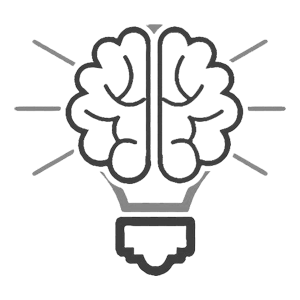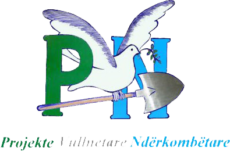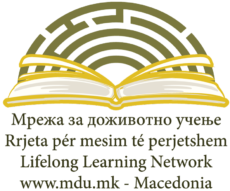The Training Course

The first main activity, the training course (TC) is in line with the aims and objectives pursued under the wider frame of the project.
Through the problem tree analysis, we made at the initial stages of this project, we identified two main needs of youth workers and organizations, related to the main topic of inclusion:
- Youth workers lack awareness, skills and methods regarding the inclusion of marginalized youth and tend to exclude them from common activities;
- Organizations need stronger and sustainable partnerships, exchange and transfer of knowledge and good practices towards social inclusion of YwD and YwFO in their programs, projects and activities.
The project addresses these needs through the training course, which will tackle the challenge of educational/motivational support to the ultimate group of targets by means of developing methodologies and approaches enhancing the capacities of operators directly working with this challenging category of youngsters in providing the latter with concrete instruments of empowerment.
The educational methodology employed to achieve the mentioned educational impact is non-formal education (NFE). NFE, in force of its immediate, flexible and horizontal (that is a-hierarchical) substance, is a particularly suited instrument for educators willing to obtain the maximum educational impact from activities/programs addressing project direct target groups. By means of providing the maximum sanction to individual’s contribution in the process of learning, NFE is also strictly functional to promoting the educational inclusion and participation of YwD and YwFO.
The TC addresses the needs of youth workers to upgrade their knowledge, to develop skills/methods in working with YwD and YwFO, to learn how to actively involve them in activities in accordance with their special needs.
The main phases and activities of the TC:
- After the project implementation begins, the partner organizations will work on promoting the activities through all their social networks and channels in order to start the selection process of the participants, based on an info pack and a common application form. When the selection is complete, 2 meetings between the participants and the sending organization will be organized. The purpose of the meetings is to prepare the participants for the activity they will be part of, in order to make sure every participant is involved and understands all the matters concerning the TC and the project. These meetings also serve as methods to improve or shape the project’s agenda;
- The TC will take place in Cluj-Napoca, Romania, 3-8 November 2019. The activity will involve 25 youth workers/youth leaders, aged 18+ and English speakers (at least B1), as English is the working language of the training course. Each participating country to the consortium (Romania, Serbia, Albania, Italy, and Macedonia) will send 5 participants to the training course, out of which 1 participant is disabled. There will be 1 accompanying person/country for the disabled participant. The course will also involve 2 trainers from Albania and Romania. The trainers are already selected, based on the experience they have regarding social inclusion, non-formal education and the use of sport and outdoor activities as tools for inclusion.
Most of the activities of the TC will take place in Cluj-Napoca, in one of the conference rooms provided by The High School for Visually Impaired Cluj-Napoca (LSDV), which has been a great collaborator of Asociatia Babilon Travel (ABT) over time in different projects. Out of the total of 6 days of training, 3 will be dedicated to sports and outdoor activities in the mountain area surrounding Cluj-Napoca (if the weather conditions allow it) and in other sports facilities offered for our training activities by the same high-school or by other local stakeholders.
During the activities of the TC, non-formal education tools and methods will be employed, such as quizzes, role-play, debates, action learning sets, presentations, group work, problem solving and outdoor education methods. The TC setting will allow participants to achieve group tasks, engage in debates and give presentations. There will be 2 trainers from Romania, selected by ABT based on their experience in working with YwD and YwFO, on their skills in using nonformal education, and on their knowledge regarding the Erasmus+ projects.
ABT, with the help of the other Romanian partner – DASM Cluj-Napoca – will take care of all the logistics associated with the venue, the food, the local transportation, the materials employed for the training, the sports and outdoor activities etc.
Each activity of the TC will finalize with a debriefing session to encourage the open discussions and a deeper analyze of the participants upon their own thoughts and on how they have understood the specific tasks.
Every day of the TC will end up with a self-reflection/ group reflection time and will allow participants to monitor their progress on the learning process.
One of the 5 participants from each country will be chosen to be the future youth leader (YL) in the youth exchange (YE) for that particular national group. The selection of the youth leaders will be made based on performance and involvement within the activities of the TC. These YLs (1 for each country) will be selected by the trainers at the end of the TC, after consultations with the corresponding partner. We will conclude the TC with final evaluation, we’ll evaluate if the course has reached its objectives and results by getting a direct feedback from our participants.






